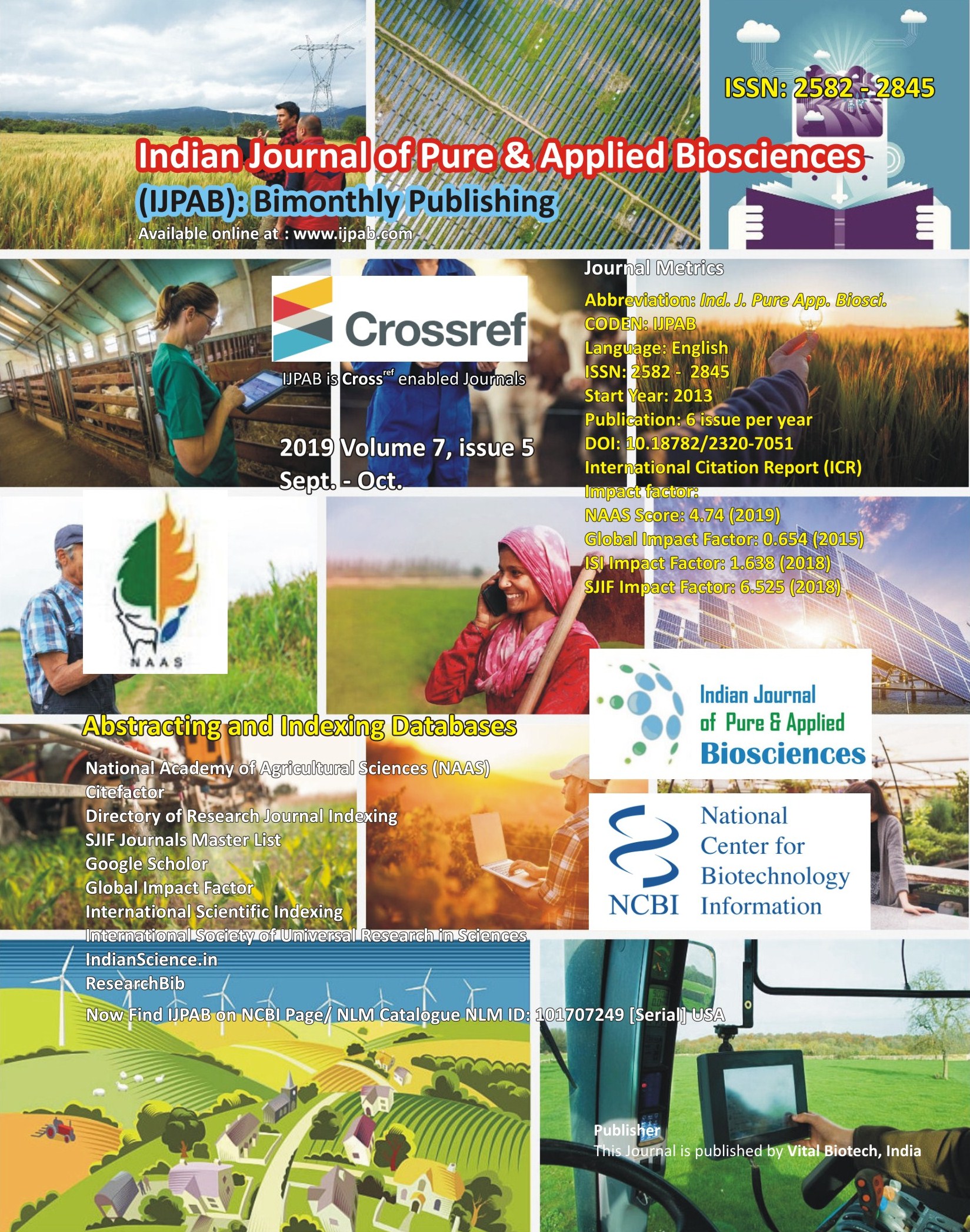
-
No. 772, Basant Vihar, Kota
Rajasthan-324009 India
-
Call Us On
+91 9784677044
-
Mail Us @
editor@ijpab.com
Indian Journal of Pure & Applied Biosciences (IJPAB)
Year : 2019, Volume : 7, Issue : 5
First page : (514) Last page : (519)
Article doi: : http://dx.doi.org/10.18782/2320-7051.7735
Evaluation of IPM Practices in Tomato Crop in Central Plain of Uttar Pradesh
Deepak Rai*, Ramkewal and Rajesh Singh
Krishi Vigyan Kendra, ICAR-Indian Institute of Sugarcane Research, Lucknow
*Corresponding Author E-mail: deepakrai75@gmail.com
Received: 7.09.2019 | Revised: 10.10.2019 | Accepted: 17.10.2019
ABSTRACT
The study was carried out during year 2016-17 and 2017-18 in Lucknow district of Uttar Pradesh to focus on the vegetable growers regarding validation of IPM practices in tomato crop. It showed that higher emergence of tomato seedling (80-90%) was recorded in bio-agent treated seeds at raised bed than untreated seeds in flat bed traditionally. Demonstrated field showed less incidence of insects and diseases like fruit borer, whitefly, damping-off, blights, buckey rot, wilt and leaf curl viruses than farmers practices i.e. 80-90%.Increase in yield over farmer practice was upto 12.00 percent. Farmers generally grow hybrid varieties of tomato crop with use of excess amount of seeds, fertilizer and pesticides but could not get respectable yield. IPM demonstrated plot showed Rs. 75000 per ha. additional return over farmer practices with extra saving of Rs. 5000 per ha. from cost of cultivation. So, demonstrations of IPM practices in this crop were urgent ally required. It was further observed that in terms of economics higher net returns per hectare compared to framers practices in both years. Average percent technology index was 35.50 indicated the urgent need to motivate the farmers to adopt economical viable technologies for increasing production, productivity and profitability of tomato crop. Thus adoption of IPM practices were an economically, ecologically viable and profitable venture.
Keywords: IPM, Tomato, Onion, Brinjal, Cabbage, Cauliflower
Full Text : PDF; Journal doi : http://dx.doi.org/10.18782
Cite this article: Rai, D., Ramkewal, & Singh, R. (2019). Evaluation of IPM Practices in Tomato Crop in Central Plain of Uttar Pradesh, Ind. J. Pure App. Biosci. 7(5), 514-519. doi: http://dx.doi.org/10.18782/2320-7051.7735

